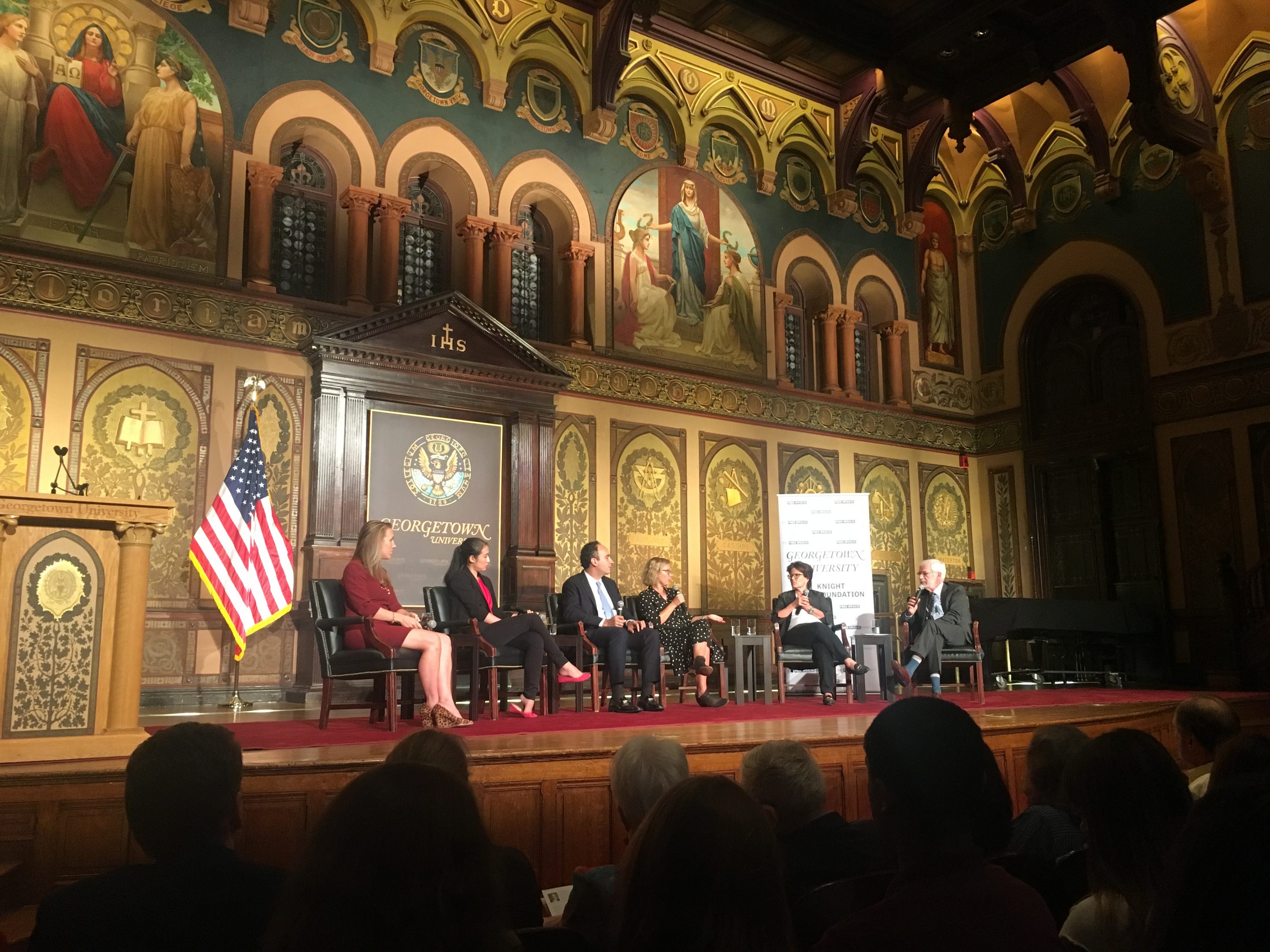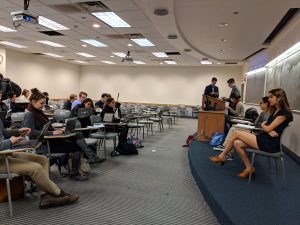Georgetown’s Free Speech Project hosted a panel this Monday in Gaston Hall to discuss how speech on social media platforms should be regulated. Titled “Social Media and the First Amendment,” the panel featured contrasting viewpoints on how platform policies and government action can better solve several online issues, including harassment, misinformation, and sensationalist content.
The panel consisted of five figures in the technology field. Kara Swisher, a contributing opinion writer at the New York Times and editor-at-large of Recode, joined Sarah Jeong, the lead technology writer for the Times’ editorial board. Also present were Jeff Kosseff, a professor of cybersecurity at the U.S. Naval Academy; Katie Fallow, an attorney for the Knight First Amendment Institute at Columbia University; and Lori Moylan, a public policy manager for Facebook. Sanford J. Ungar, director of the Free Speech Project at Georgetown University, moderated the panel. The discussion follows years of controversies regarding social media platforms.
This March, graphic video footage of a mass shooting in Christchurch, New Zealand, repeatedly resurfaced on platforms as users attempted to re-upload the video hundreds of thousands of times. Russia’s interference in online discussion of the 2016 presidential election gained national attention as well, and this July, the White House hosted a social media summit to discuss alleged anti-conservative bias online.
Excluding Moylan, all panelists dismissed conservatives’ recent allegations of censorship on social media platforms. “Facebook has made a lot of mess ups, but this is not one of them,” Swisher said. “It’s taking the focus off what’s really important, which is keeping most people safe online.”
Moylan assured the audience that Facebook aims to avoid bias. “Yes, it is true that conservative content fares very well on Facebook,” Moyland said. “However, that doesn’t change the fact that we do take the bias accusations seriously.”
Moylan also emphasized Facebook’s progress to address concerns from Russian involvement in the 2016 election to viral disinformation, saying, “We’re just one company.”
This caused Ungar to interject. “A company with 2 billion subscribers, right?,” he said.
As panelists discussed the massive influence of social media, Swisher recommended antitrust actions to break up the platforms. “If you break them up you will create much more innovation,” Swisher said. “Say you pulled YouTube off of Google, maybe YouTube will go, ‘You know, maybe we should bill ourselves as a safe place for people to behave.’”
Beyond a lack of regulation, the panelists also expressed other worries about online discourse. “We have a hard time wrapping our heads around what’s going on there—the disinformation, the trolling, just the vast scape of terribleness on the internet,” Jeong said. “It’s just not working out, and there’s a number of reasons for that.”
Above all, Jeong recommended public engagement in the regulation process.
“I think that goes to the core of a lot of what we’re talking about—is making it very loud and clear to your elected representatives that this isn’t a boring issue, this is something that you actually care about,” she said.






